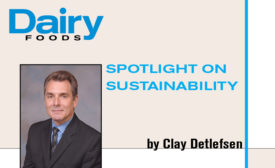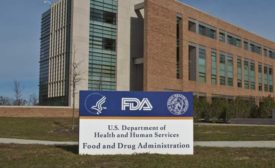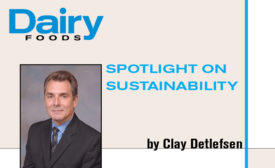Articles by Clay Detlefsen
Legislation under review in Pennsylvania could help the state dramatically reduce nitrogen runoff while reducing overall compliance costs.
Read More
Online guide reviews sustainable technologies for dairies
A new website reviews technologies for managing or creating manure-based products. Dairy producers will find this site helpful.
April 12, 2017
Water Quality Trading is a win-win solution
The EPA notes that nutrient-recovery technologies provide palpable and verifiable nutrient reductions, which can allow for the elimination of the uncertainty ratios.
January 11, 2017
Use these tools to measure sustainability efforts
To reduce GHG emissions further, all segments of the dairy industry must optimize efficiency. That means increasing milk yield per cow, reducing enteric emissions, improving manure handling, optimizing breeding and enhancing cow comfort.
October 11, 2016
Food safety
Dairy processing facilities must follow new FDA intentional adulteration rule
This rule in many respects parallels the Preventive Controls Rule for Human Food with the exception that it deals with intentional bad acts.
June 2, 2016
Food for thought: use nutrient trading to improve water quality
Despite years of progress, more than half of the nation’s waterways still do not meet water quality standards.
April 13, 2016
Sustainability
When it comes to recycling, it's time to take another look at milk cartons
October 14, 2015
Stay ahead of the curve. Unlock a dose of cutting-edge insights.
Receive our premium content directly to your inbox.
SIGN-UP TODAYCopyright ©2025. All Rights Reserved BNP Media.
Design, CMS, Hosting & Web Development :: ePublishing




